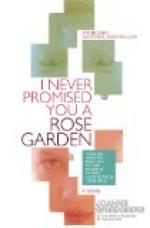Better begin as I did by buying them in mixture; the species you must choose are the bizarre, bybloems, parrots, breeders, Darwin tulips, and the rose and white, together with a general mixture of late singles. Five dollars will buy you fifty of each of the seven kinds, three hundred and fifty bulbs all told and enough for a fine display. The Darwin tulips yield beautiful shades of violet, carmine, scarlet, and brown; the bizarres, many curious effects in stripes and flakes; the rose and white, delicate frettings and margins of pink on a white ground; but the parrots have petals fringed, twisted, beaked, poised curiously upon the stalks, splashed with reds, yellows, and green, and to come suddenly upon a mass of them in the garden is to think for a brief moment that a group of unknown birds blown from the tropics in a forced migration have alighted for rest upon the bending tulip stalks.
[A] F.H. Horsford of Charlotte, Vt., is very reliable in this matter.
XIV
FRAGRANT FLOWERS AND LEAVES
(Mary Penrose to Barbara Campbell)
Woodridge, August 26. The heliotrope is in the perfection of bloom and seems to draw perfume from the intense heat of the August days only to release it again as the sun sets, while as long as daylight lasts butterflies of all sizes, shapes, and colours are fluttering about the flowers until the bed is like the transformation scene of a veritable dance of fairies!
Possibly you did not know that I have a heliotrope bed planted at the very last moment. I had never before seen a great mass of heliotrope growing all by itself until I visited your garden, and ever since I have wondered why more people have not discovered it. I think that I wrote you anent hens that the ancient fowl-house of the place had been at the point where there was a gap in the old wall below the knoll, and that the wind swept up through it from the river, across the Opal Farm meadows, and into the windows of the dining room? The most impossible place for a fowl-house, but exactly the location, as The Man from Everywhere suggested, for a bed of sweet odours.
I expected to do nothing with it this season until one day Larry, the departed, in a desire to use some of the domestic guano with which the rough cellar of the old building was filled, carted away part of it, and supplying its place with loam, dug over and straightened out the irregular space, which is quite six feet wide by thirty long.
The same day, on going to a near-by florist’s for celery plants, I found that he had a quantity of little heliotropes in excess of his needs, that had remained unpotted in the sand of the cutting house, where they had spindled into sickly-looking weeds. In a moment of the horticultural gambling that will seize one, I offered him a dollar for the lot, which he accepted readily, for it was the last of June and the poor things would probably have been thrown out in a day or two.




